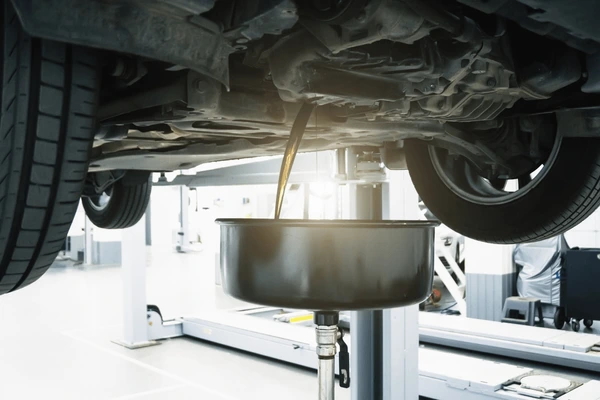Fluid Exchanges
Since vehicles have several mechanical systems that require fluids for lubrication or cooling purposes, there are several types of important fluid exchanges to keep your vehicle running longer with less need for expensive repairs.
Give us a call today to schedule your vehicle fluid exchanges!
Here are the most common systems:
- Engine Oil Exchange
- Transmission Fluid Exchange
- Coolant System Fluid Exchange
- Brake System Fluid Exchange
- Power Steering Fluid Exchange
- Differential Fluid Exchange
LEARN ABOUT FLUID EXCHANGES:
Fluid exchanges are crucial for maintaining the health and performance of a vehicle. Regularly replacing or exchanging fluids helps prevent premature wear, ensures optimal functioning, and can enhance fuel efficiency. Here’s a breakdown of the importance of various fluid types and specific examples:
1. Engine Oil
- Importance: Engine oil lubricates the engine's moving parts, reducing friction and preventing overheating. Over time, oil can become contaminated with dirt, debris, and combustion byproducts, leading to engine wear.
- Example: A regular oil change every 6,000 miles (depending on the vehicle and oil type) helps maintain proper lubrication and can extend the life of the engine.
2. Transmission Fluid
- Importance: Transmission fluid lubricates and cools the transmission's internal components, ensuring smooth gear shifts. Contaminated fluid can lead to slipping gears, overheating, and costly repairs.
- Example: Replacing transmission fluid every 40,000 to 90,000 miles can prevent transmission failure and maintain optimal shifting performance.
3. Coolant
- Importance: Coolant, or antifreeze, regulates the engine's temperature and prevents freezing in cold weather. Over time, coolant can become acidic and lose its effectiveness, leading to engine overheating or corrosion.
- Example: Flushing and replacing the coolant every 100,000 miles helps protect the engine from overheating and extends the lifespan of the radiator and cooling system components.
4. Brake Fluid
- Importance: Brake fluid transfers force from the brake pedal to the brake components, enabling effective stopping power. Moisture can accumulate in brake fluid over time, reducing its boiling point and leading to brake failure.
- Example: Regularly exchanging brake fluid every 2 years can ensure optimal brake performance and safety.
5. Power Steering Fluid
- Importance: Power steering fluid provides the necessary hydraulic pressure for steering components to function smoothly. Contaminated fluid can lead to steering difficulties and increased wear on the power steering pump.
- Example: Changing power steering fluid every 50,000 miles can help maintain ease of steering and prevent costly repairs to the steering system.
6. Differential Fluid
- Importance: Differential fluid lubricates the gears in the differential, allowing for smooth rotation and proper handling of the vehicle, especially during turns. Old or contaminated fluid can lead to increased friction and gear wear.
- Example: Exchanging differential fluid every 30,000 to 90,000 miles (depending on the vehicle) can enhance vehicle handling and prevent differential failure.
Conclusion
Regular fluid exchanges are essential for vehicle maintenance. They not only promote vehicle longevity and performance but also contribute to overall safety. Keeping up with fluid changes according to manufacturer recommendations helps avoid costly repairs and ensures a smoother driving experience.